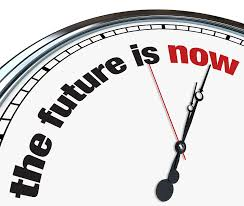 The farmer knows he must become adept at one of two things: Planting in the spring or begging in the fall. It’s time for planting….
The farmer knows he must become adept at one of two things: Planting in the spring or begging in the fall. It’s time for planting….
Oftentimes when I meet with clients, I hear statements like: “I don’t need the money right now; but when I do need it, I’ll get in touch with you.” Today, I’ll attempt to show you how faulty this line of reasoning is, and how to make your home’s equity work for you now to take care of your future. As you are hopefully aware, the HECM Adjustable Rate Mortgage (ARM) allows the borrower to elect to place their funds in a Credit Line or Line of Credit, from which the borrower can withdraw funds as needed. Interest only accrues on the balance of funds that have been withdrawn, and it thus operates much like a Home Equity Line of Credit. Of course, with the Reverse Mortgage Credit Line, you are not obligated to make monthly payments. Now for the huge difference: the Reverse Mortgage Credit Line grows in size as time goes by. That’s right, I said it: the unused balance of your Credit Line becomes larger each month. Your unused balance is not gaining interest, so you’re not going to be taxed, but it will grow just as if the bank was paying you interest. If you look at a typical Reverse Mortgage Loan Comparison (which any lender will show you), you’ll see a figure called the Credit Line Growth Rate. At this moment in time, the Growth Rate will be your Interest Rate plus 1.25%. On the Reverse Mortgage Loan Comparison I created today, the Interest Rate is 4.475% and the Credit Line Growth Rate is 5.725%. I know I’m putting some of you to sleep with these numbers, but stay with me now; this is where it gets interesting. Our borrower, Mr. Sample, closes his Reverse Mortgage Loan at the age of 64. He told me he is not retiring for another ten years so he doesn’t need the funds right now. He places his funds ($230,000) in the Credit Line Account which has a Growth Rate of 5.725%. At the end of the first year, his available Credit Line balance has grown to $243,167.50. Not too shabby, but since the Growth Rate compounds, it grows faster and faster each month. At the end of 10 years, the available balance has grown to a whopping $401,332.84, and all Mr. Sample had to do was make a decision for his future without waiting until he was up against the wall.
Good decisions are generally made when we’re not under pressure. Do yourself and your family a favor and think about improving your future today.


